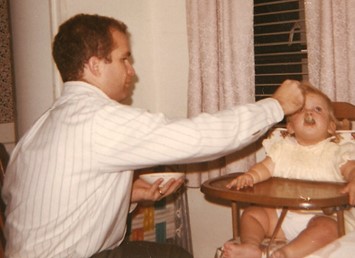I had to get my son’s permission to talk about this, but he said he was okay with me talking about it.
There’s a quiz running around Facebook right now that’s supposed to give your “Autism Quotient”. While the quiz does say it’s not a diagnosis, a lot of the discussion I’ve seen shows that people probably aren’t clear on what a confusing and complex condition autism can be.
We spent somewhere around six years, for instance, getting a solid diagnosis for my son, who clearly had developmental issues growing up. They were very quick to jump on the High-Functioning Autistic bandwagon among the laymen. I foot-stomped on the Asperger’s diagnosis, because Asperger’s kids are hyperverbal –one of the things that makes an early diagnosis extremely difficult[1]. If a kid’s talking obsessively about Thomas the Tank Engine at two or three, why’s that’s kind of normal. So what if he’s memorized trivia to an extreme level of detail. Just shows she’s bright, right?
My son was not hyperverbal. In fact, one of the first clear indications that there was something wrong was the fact that he wasn’t talking. He said a few words as a toddler, but he was at least six before he had progressed to being fluently verbal. Oddly enough, his verbal development exploded with his teaching himself to read.
The testing process was intensive, going to several specialists in the process. We were lucky enough to speak to an autism specialist at CHaD (Children’s Hospital at Dartmouth) and got this response:
“Well, he’s eccentric, but he’s not autistic.”
Yes, a doctor ACTUALLY SAID THAT.
We did eventually get a diagnosis that would get him the help he needed in school, mind. And he did (does) need that help. But it took about six years to get a clear and definitive answer on whether or not Autism was the issue or not. And we’re hardly unusual.
Autism is referred to as a spectrum disorder for a reason. Yes, there are times when autism is pretty easy for a professional to diagnose. But I can promise you that it can’t be diagnosed from a 100 question test online, okay. It takes extensive clinical observation and ruling out of other (often similar or overlapping) issues.
If you suspect you might be autistic and think you need help, yes yes yes, go to your doctor and get some referrals to some really good professionals who can help you with this. There is help available to you. If you have a sympathetic friend or family member who would be willing to help you, ask for help. If you suspect you are autistic, it is probable that many of the things you will have to do to get a diagnosis and help will be confusing and overwhelming to you. An advocate can help you. (Though this is a Universal Principle of Life, I think. My son is folding the laundry right now to give me time to write this…)
If you have a child with developmental issues, you are that child’s advocate. Take it seriously. Follow up, follow up, follow up. Talk to teachers. Follow up at home with coping strategies. Go online. Learn about it.
Oh, and don’t forget to have fun with your child.
NIH Fact Sheet on Autism –contains many solid links at the end for extensive follow-up.
[1] I did a LOT of research on the subject when we started to suspect our son was autistic. This made me less than eager to accept a diagnosis from a nursery school teacher who seemed pretty definite, since I knew that specialists in the field were often stumped. If a specialist told me I was full of shit and the nursery school teacher was right, fair enough. Early childhood educators OFTEN spot problems that need following up on, so DO that if encouraged to. They’re just not qualified to diagnose.




